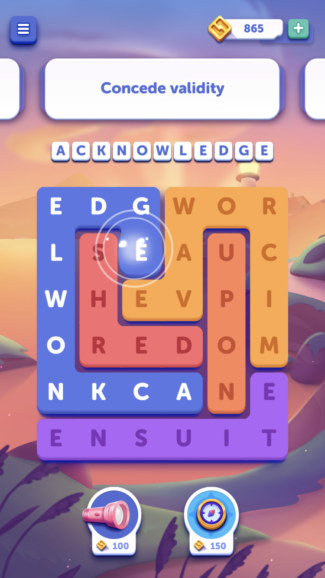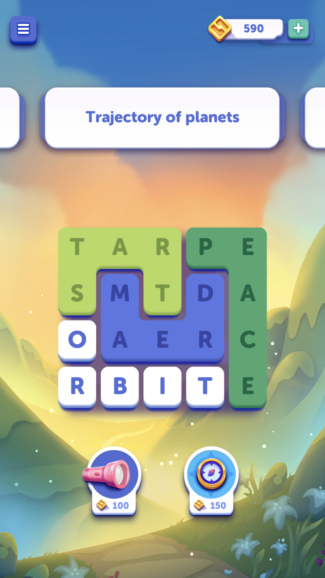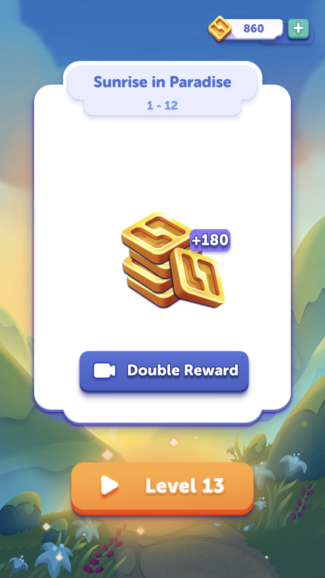Bastion
LQ: 9.15
Recommended Age: 10+
Skills Used: Planning, Working Memory, Mathematics, Reading
 Word Lanes is a word search puzzle game where the player needs to navigate through a board of letters to find answers to given clues. Unlike a traditional crossword puzzle, the answers can be backwards and also curve along the board as opposed to simply being vertical, horizontal, or diagonal lines.
Word Lanes is a word search puzzle game where the player needs to navigate through a board of letters to find answers to given clues. Unlike a traditional crossword puzzle, the answers can be backwards and also curve along the board as opposed to simply being vertical, horizontal, or diagonal lines.
In each level, the player will receive a series of clues that will lead them to the words they need to locate. If the player is stuck on a clue, they can double tap on it to move to the next word until they have completed the puzzle. As you progress through the different levels, the puzzles increase in complexity and number of clues.
Completing puzzles earns the player coins which can be used to buy hints such as the flashlight which shows the first and second letter of the word you are looking for, or the compass, which shows you where the starting letter for your word is located.
Because of the advanced level of reading and spelling required to play the game, children under the age of eight may find this game too difficult without the help of an adult.
Word Lanes is free-to-play but also contains in-app purchases. It is available now for Android and iOS.
 Flexibility: Adapting and adjusting to changing conditions and expectations.
Flexibility: Adapting and adjusting to changing conditions and expectations.
Because the way the player searches for words is not like the familiar crossword puzzles, flexibility will be necessary to complete the challenge and move on. The words can wind around the board, go backwards, or even encompass two small words into one. Players who struggle with flexibility may find themselves taking longer to complete the puzzle or using up all of their hints more quickly than they wanted to. For these players, starting with the simpler puzzles and using clues sparingly will force them to try and see the puzzles in this new way before they move on to the more complex puzzles.
The clues in the game also require a level of flexibility because there is only one answer for the puzzle but there could be multiple answers in the real world. If the player struggles with being flexible, they might be convinced they have the correct answer to the clue but find they are unable to locate their answer on the board. For these players, skipping this particular clue and completing the others first will allow them to see their narrowed options and choose the correct answer.
 Planning: Developing a systematic approach for setting and achieving goals.
Planning: Developing a systematic approach for setting and achieving goals.
Each puzzle earns the player a number of coins upon completion. These coins can be used to purchase special hints such as flashlights and compasses which can direct the player to the correct answers. Players need to plan out when to spend their coins on these hints and know when to use them when they are truly stuck on a puzzle. Players who struggle with planning skills may find that they run out of coins or hint resources quickly and are unable to solve a particular puzzle. Starting with the simpler puzzles and solving the easier clues first is a good strategy to build up planning skills within the game. Then, when the levels increase in difficulty, the player can choose when to use their hints for when they are truly stuck.
All membership plans come with full access to our entire suite of tools learning guides, and resources. Here are a few of the ones we think you’ll like the most: